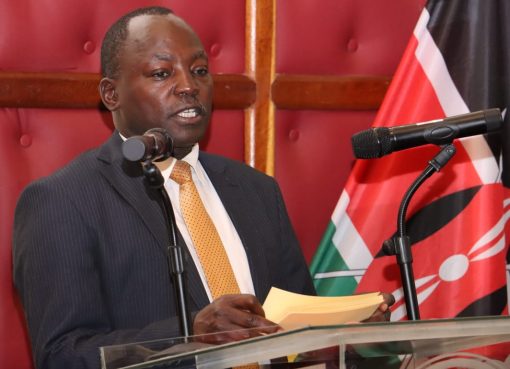Public officers overseeing government projects within their areas of jurisdiction have been asked to be prudent in their supervision work to ensure members of the public gets value for their money.
Speaking during a tour of the Kitale – Endebbes – Suam Road on Friday, the Trans Nzoia County Commissioner (CC), Jim Njoka said that officers in charge of government projects will be held personally liable for substandard works.
Njoka reminded public officers that the government has entrusted them with the huge responsibility to oversee the projects, aimed at improving services to residents.
The Kitale- Endebbess-Suam road (C45) is a project financed by African Development Bank (ADB) and the Kenyan government.
Works on the road commenced on February 2018 and has been scheduled to end on 25th August 2020.
The key road will open up Suam border with Uganda and spur business activities at the locality, earmarked to be one-stop-boarder point.
Njoka said that the Uganda was also set to tarmac the road on their side, which will further boost trade relations between the two neighbouring countries.
The 45 kilometer road will cost tax payers Sh.4.4 billion and is at 15 per cent completion. The CIDCC has a mandate of verifying, monitoring and identifying challenges facing all government projects within the county.
The committee also has the mandate to find solutions to gaps to ensure that the project is completed without many problems.
The committee also visited Kitale- Webuye road which is at 99.4 percent completion and cost tax payers Sh.4.5 billions. The two roads are being supervised by Kenya National Highways Authority (KeNHA).
The CC asked different departments to establish good working relations that will enhance success of implementation of the projects.
“We must all embrace a multi-sectoral approach in implementing projects for them be done on time,” he said.
The Kitale –Webuye road is one of the success stories of government projects that have been completed on time without undue bottlenecks. It was funded by the government in conjunction with World Bank from January 2013 and completed in March 2019 as scheduled.
By Pauline Ikanda


